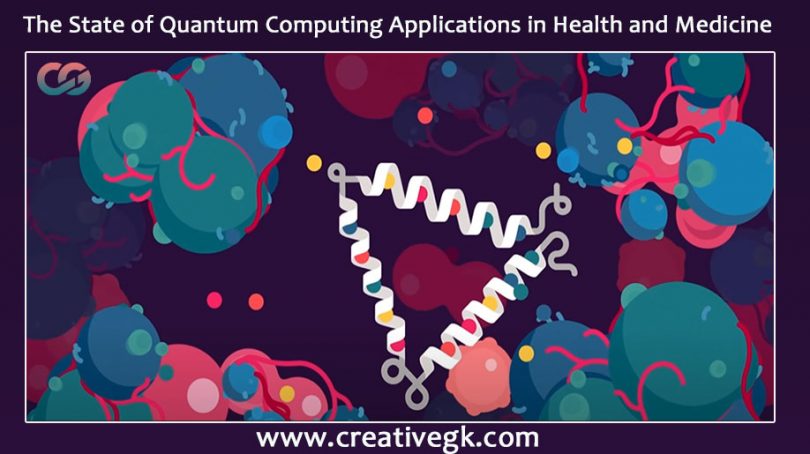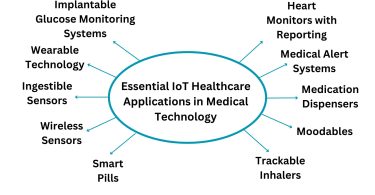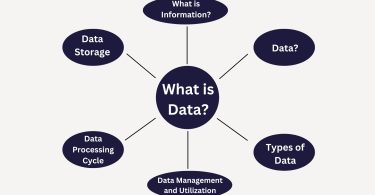We might be on the verge of a major change in how computers are used in healthcare and medical research. Quantum computing has the potential to greatly enhance computer power and bring about a new era in technology. It could have a similar impact as the first personal computers did compared to the early computers of the past.
Revolutionizing Clinical Practice: Quantum Computing and Machine Learning in Healthcare.
In machine learning, computer programs can analyze large amounts of data and identify patterns without relying heavily on assumptions. This is particularly valuable in clinical practice, where databases of medical records and other data are constantly being updated. Quantum computing is necessary to handle the complexity of these programs and provide real-time results. As a result, doctors may be able to use predictive models to choose the most suitable treatment for each patient based on continuously updated models that take into account various patient characteristics.
Quantum Computing’s Role in Enhancing Cancer Treatment: Improving Therapies with Advanced Radiation Planning.
In cancer treatment, quantum computing can contribute to improved therapies. Presently, computers play a vital role in devising radiation plans that precisely target cancerous cells, all while minimizing potential damage to surrounding healthy cells. Quantum computers would enable faster and more precise radiation planning and allow for comparisons of various approaches.
Empowering Evidence-Based Medicine: Integrating Big Data and Quantum Computing for Timely Insights.
The volume and speed of new research discoveries can be overwhelming. Even the best attempts to provide evidence-based medicine guided by guidelines face challenges due to the rapid generation of new evidence. By combining big data with quantum computing, we can access and effectively utilize the latest evidence in healthcare. Achieving personalized medicine will require analyzing vast amounts of data from different sources such as patient records, genetics, wearable devices and more.
Maximizing the Impact of Quantum Computing in Medicine: Integrating Data from Bio-banks and Patient Networks.
However, for quantum computing to be valuable in medicine, we also need to have access to clinically meaningful data from multiple sources. Overcoming the challenges of utilizing quantum computing in healthcare will involve merging data from patient networks, bio-banks, wearable health devices and other sources.
Quantum Computing and the Doctor-Patient Relationship: Why Personal Interactions Remain Essential in Healthcare.
Will the future include virtual visits to doctors? Most patients expect more than just medication when seeking care, especially in treatments with higher risks or complex regimens. Quantum computing is incapable of replacing the fundamental doctor-patient relationship, which heavily relies on transparency, trust and decision-making. Furthermore, computers cannot provide the same level of encouragement, empathy, and social support as healthcare professionals through personal interactions. We should never underestimate the power of the bond patients form with their doctors and the healing support provided by doctors, nurses, and staff. Computer algorithms, whether run on traditional or future quantum computers, lack emotions and will never have the same impact as a surgeon’s promise to guide you through a procedure or a primary care provider’s encouragement to engage in healthy habits like walking for an extra 5 minutes to improve your health.
Challenges and Limitations:
Despite the immense potential, there are significant challenges that need to be addressed in order to fully leverage quantum computing in the field of health and medicine. One major obstacle is the limited availability and scalability of quantum computers at present. Quantum systems are extremely sensitive to environmental disturbances, necessitating specialized infrastructure and stringent temperature control for optimal performance. Furthermore, the development and optimization of quantum algorithms tailored to specific healthcare applications are ongoing, and integrating them into existing quantum hardware poses its own set of difficulties.
Future Prospects:
Although quantum computing in health and medicine is still in its nascent stages, promising prospects lie ahead. Rapid advancements and collaborative efforts between quantum scientists and healthcare experts are anticipated to drive progress in the field. As quantum computing technology matures and becomes more accessible, its applications are likely to expand across various domains within healthcare. Continued research and development in quantum algorithms and hardware will be crucial in unlocking the full potential of quantum computing in transforming healthcare practices and improving patient outcomes.
Summary:
The integration of quantum computing with machine learning holds promise for advancing clinical practice by analyzing vast amounts of data and generating real-time results. In cancer treatment, quantum computing can enhance therapies through advanced radiation planning, leading to more effective treatments with fewer side effects. The combination of big data and quantum computing enables evidence-based medicine and personalized healthcare, utilizing the latest insights from diverse sources.
The future prospects of quantum computing in health and medicine is promising. Collaboration between quantum scientists and healthcare experts, along with continued research and development, will be instrumental in unlocking the full potential of quantum computing and driving transformative changes in healthcare practices, ultimately improving patient outcomes.



